Mexico’s challenges with too much, too little and too dirty water
Mexico is a large, culturally and environmentally diverse country. As climate change is affecting hydrological cycles, the country is facing more and more challenges regarding water quantity and quality. Wendele van der Wiele, Agricultural Counselor for Mexico and Cuba and working at the Dutch Embassy in Mexico, shares Dutch knowledge and know-how on sustainable water management and the water-biodiversity-food nexus. Van der Wiele also points out where the Netherlands can learn from Mexico when it comes to biodiversity and food production.
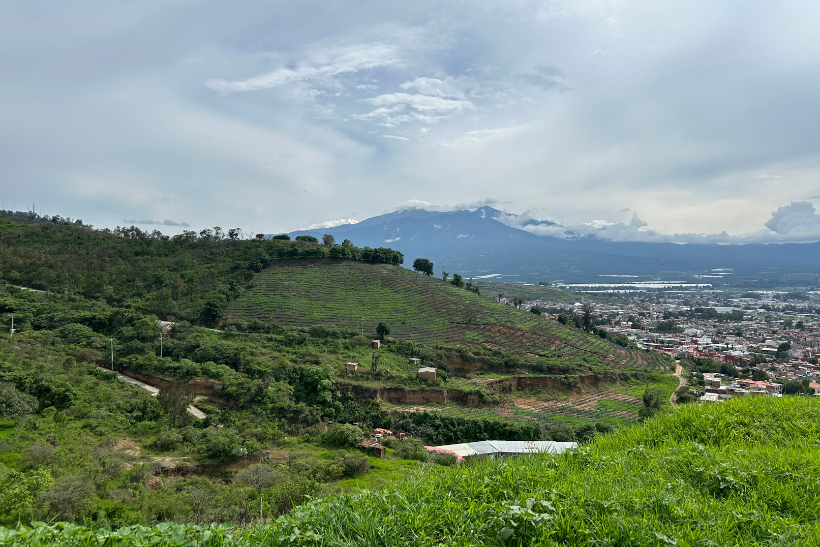
“Mexico is facing challenges like almost every other country nowadays: too much, too little and too dirty water,” Wendele Van der Wiele begins. “Especially this year, Mexico has been severely affected by droughts. We see an overall shortage of water availability, and also bad water quality of rivers and lakes. This means that it is hard to use surface water for irrigation or for other means. As a result, a lot of groundwater abstraction is taking place, and in many regions, this results in over extraction of groundwater. To illustrate, the rain here in Mexico City usually starts in May, but this year it didn’t start until mid-June.”
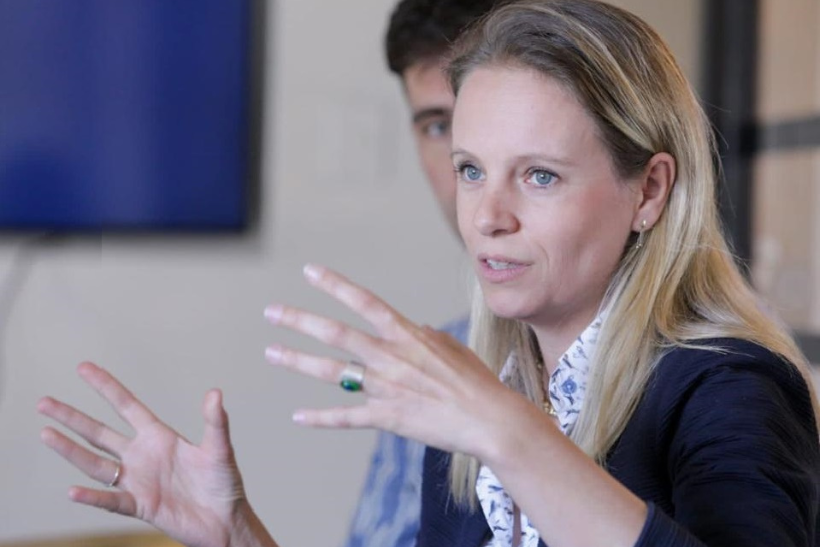
“The changing rainfall patterns directly influence agricultural production and the availability of drinking water. Mexico relies a lot on ‘presas’ (dams) for drinking water. Here, they store surface water for drinking water supply. Now, a lot of those artificial lakes are almost empty. Some of them are at 10% of what their maximum capacity is, meaning it is really a threat to drinking water availability in cities such as Mexico City or Monterrey. In 2022, Monterrey had a “day zero” meaning the day a city runs out of water. As a result, they had to cut certain parts of the city from water supply. Mexico City was very close to day zero this year as well. And then, when it finally starts to rain, it can rain really intensely, causing floods and damage to infrastructure and agriculture.”
“The Netherlands is recognized internationally as a reliable partner when it comes to water management, and Dutch companies are often involved as partners in regards to wastewater treatment and urban planning.”
An integrated water management
“With our Dutch expertise, we can bring an integrated view on water management to the table. The Netherlands is recognized internationally as a reliable partner when it comes to water management, and Dutch companies are often involved as partners in regards to wastewater treatment and urban planning.”
The Netherlands has developed much knowledge linked to the so-called landscape approach, says Van der Wiele. “We not only come up with technical interventions but also look at the whole territory. We do this by asking questions such as: how do you involve all the stakeholders? How do you organize water governance? How do you involve local communities and co-create projects? The Dutch are really specialized in this integrated approach to water management.” With this integrated approach, there are many ways the Netherlands can support Mexico and vice versa.
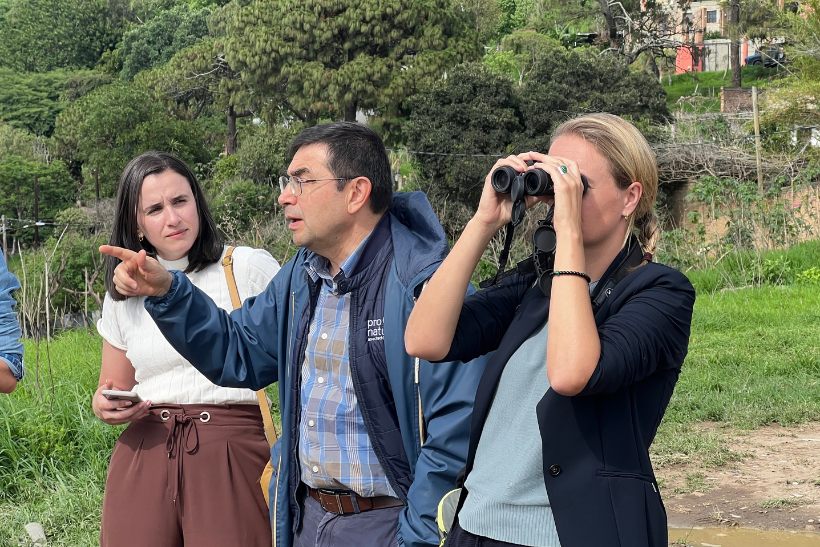
Expertise and knowledge exchange
The Netherlands Agricultural Network (LAN) team at the Dutch Embassy in Mexico works closely together with the colleagues of the economic cluster as water is a priority for them too. Van der Wiele: “We are looking into policy priorities of the Netherlands, policy priorities of Mexico, and developing a good understanding of what we, as the Netherlands, have to offer to Mexico in terms of knowledge and innovations. Where can we really support Mexico in protecting and restoring important natural areas? There are topics that you would not directly associate with the Netherlands, but where we have extensive international experience. The Netherlands has a lot of knowledge on mangrove restauration, for example, as an essential part of coastal protection and as an important area of biodiversity.
“We can learn from Mexico when it comes to the link between biodiversity and food production, and Mexican producers can learn from us.”
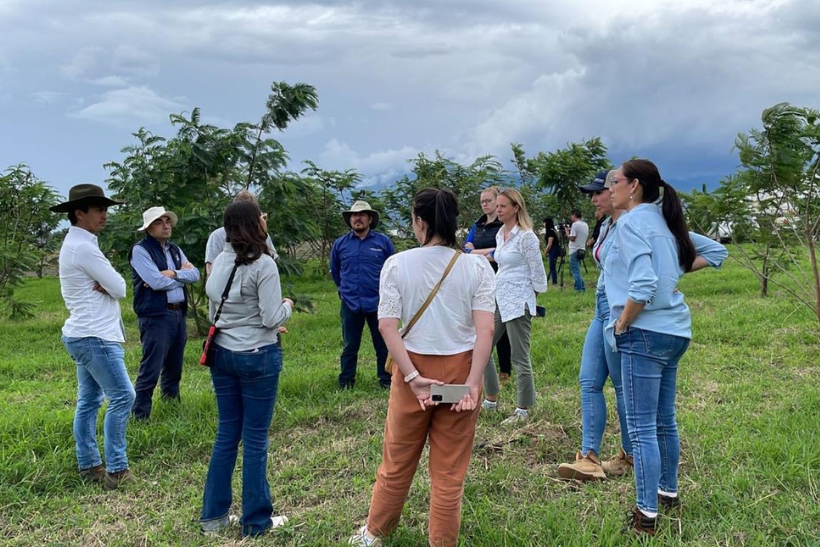
Regarding biodiversity, Mexico has a profound understanding of what biodiversity means for the country. There are many small-scale farmers with traditional pre-Hispanic knowledge on biodiversity and soil. We can learn from Mexico when it comes to the link between biodiversity and food production, and Mexican producers can learn from us. For example, using satellite data to measure the irrigation needs of crops or the monitoring of aquifers. These are game changing technologies that are useful for Mexico and where Dutch universities and companies have developed a profound knowledge.
Water-biodiversity-food nexus projects
“The LAN team in Mexico supports several projects that are focused on the water-biodiversity-food nexus. One example is the project in the area of La Laguna de Zapotlan in the province of Jalisco, which is a Ramsar site and an important body of water for migratory birds and other biodiversity. A big agricultural production area has been developed around this biodiversity hotspot over the past two decades, where avocado, berries and agave (for tequila) are produced. Government, society and the private sector recognize the challenges, such as changes in land use, deforestation and unsustainable agricultural practices. This results in rapidly decreasing water quality, overexploitation of ground water and floods due to topsoil getting washed into the lake. The stakeholders recognize the importance of collective action to improve water quality, soil health and water conservation. We support the stakeholders in how to organize their governance and to explore the interventions they can develop as a collective of producers, government, NGO’s and community to prevent further harm to the ecosystems."
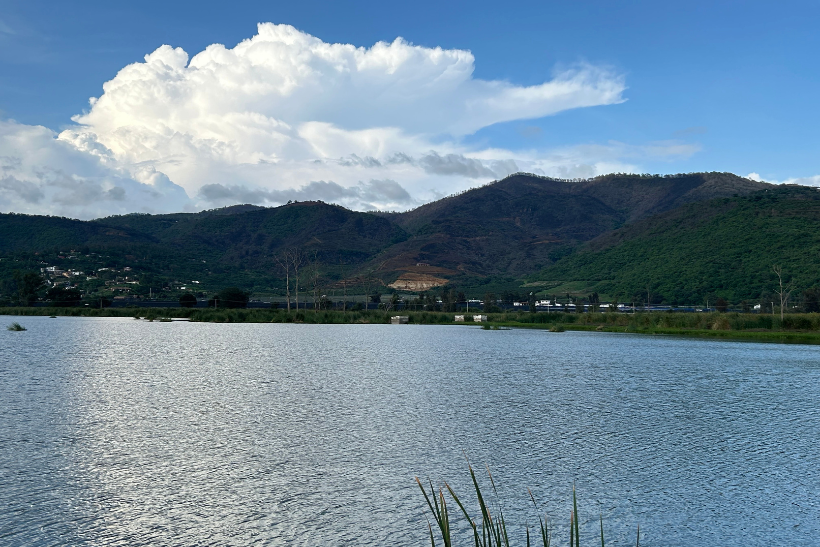
"Another example is a project on the pre-Hispanic 'Chinampas' in Xochimilco (Mexico City), which are agricultural floating islands hand-built centuries ago. Xochimilco is designated as a Ramsar site, meaning it is internationally considered an ecologically important wetland area. It is also listed by UNESCO as a World Heritage site. Their traditional agricultural system worked perfectly fine, but now farmers are facing problems with water quality. This is why we have worked together with Pronatura, a Mexican NGO on conservation, to apply biofilters and promote other sustainable agricultural practices. With this project, recommendations from previous research from Deltares are being put into practice.”
What to expect the coming years
"It's expected that Mexico’s economy will grow steadily in the coming years. This provides many opportunities, but it also implies challenges for its natural resources such as water and biodiversity, as seen in the examples of La Laguna de Zapotlan and the 'Chinampas'. So the main question that Mexican’s are asking themselves is the same as what we are asking in the Netherlands: how can we ensure that economic development does not harm natural resources? The LAN team in Mexico is contributing to this quest by sharing Dutch knowledge about governance, lessons learned and technical solutions while simultaneously learning from Mexico.”
More information and contact
For more information, you can visit the country page of Mexico on the website Agroberichtenbuitenland.nl of the Dutch Ministry of Agriculture, Fisheries, Food Security and Nature. You can also send an e-mail to the LAN team at the Dutch Embassy in Mexico City: mex-lnv@minbuza.nl.
This article is part of the 12th edition of the e-magazine Agrospecial titled "Tackling agricultural water challenges worldwide" (originally published on August 23, 2024).
In this Agrospecial, the Netherlands Agricultural Network (LAN) showcases the opportunities and challenges associated with water management. The Agricultural Counselors in Côte d’Ivoire, Mexico, Saudi Arabia, South Africa, Spain, and Vietnam introduce us to their related work, provide insights into what is happening in their respective countries, and highlight examples of how LAN is tackling water challenges through international collaboration.